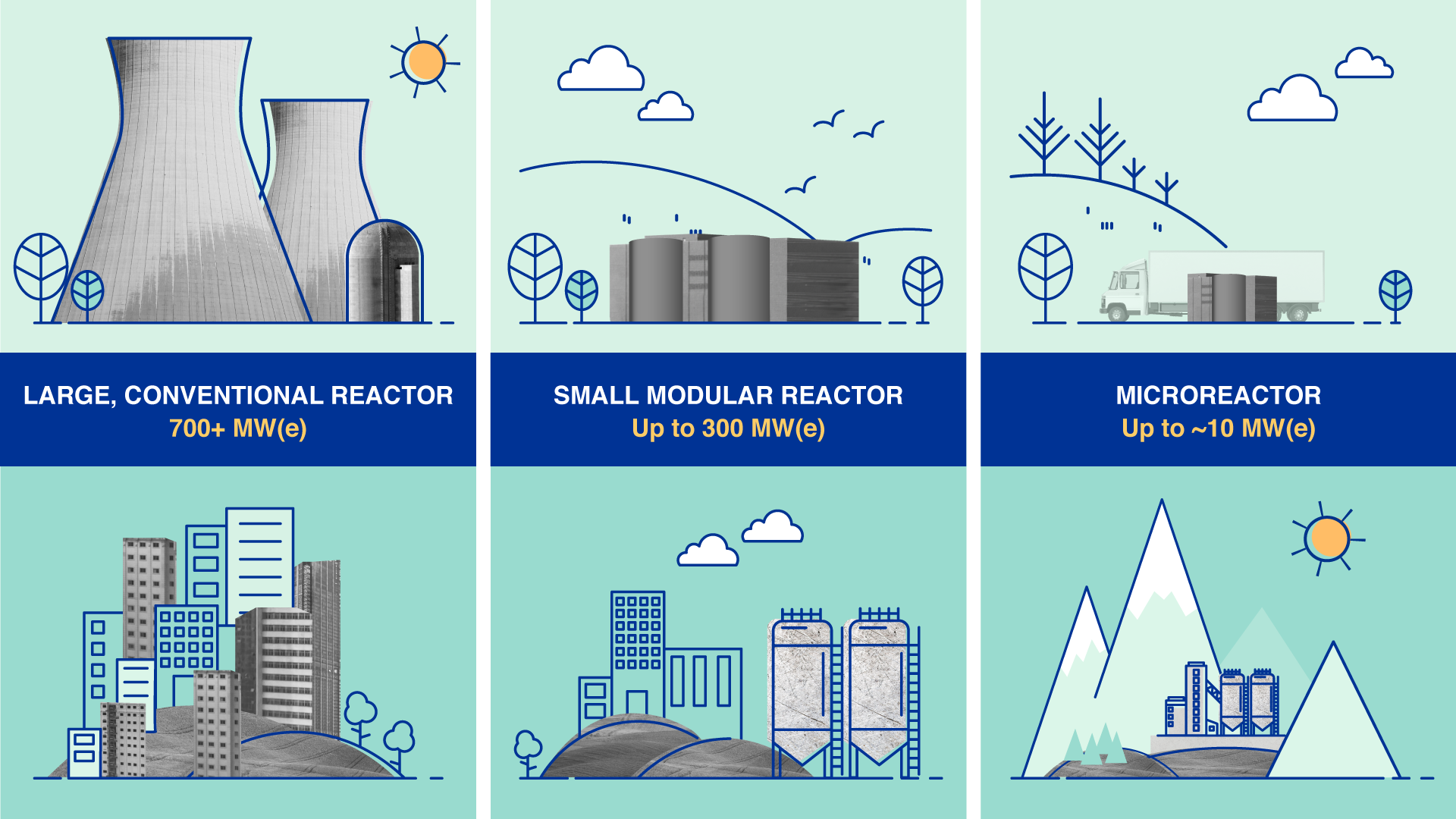Ahmedabad
(Head Office)Address : 506, 3rd EYE THREE (III), Opp. Induben Khakhrawala, Girish Cold Drink Cross Road, CG Road, Navrangpura, Ahmedabad, 380009.
Mobile : 8469231587 / 9586028957
Telephone : 079-40098991
E-mail: dics.upsc@gmail.com

Small Modular Reactors
News: We discuss about India’s shift towards Small Modular Reactors (SMR) as a part of its move towards nuclear energy.
What are SMRs?
• Small modular reactors (SMRs) are a proposed class of nuclear fission reactors that are smaller than conventional nuclear reactors, which can be built in one location (such as a factory), then shipped, commissioned, and operated at a separate site
• They have a power capacity of up to 300 MW per unit, which is about one-third of the generating capacity of traditional nuclear power reactors.
• India’s strategy for nuclear energy transition involves transitioning from larger nuclear power plants to smaller ones, specifically Small Modular Reactors (SMRs).
• India aims to raise nuclear power to 10% of its energy mix by 2035.
What is Niti Aayog’s strategy?
• Increased private sector participation through public-private partnerships.
• Implementing comprehensive regulatory changes to ensure safety standards and monitoring.
• Modifying foreign investment policies to attract domestic and foreign companies for SMR development in India.
What is the status of SMR’s globally?
• Worldwide over 70 SMR designs are under development in 17 countries
• Russia’s 77 MW SMR, Akademik Lomonosov, was operational as early as 2019.
• In the U.K., Rolls-Royce is setting up a manufacturing facility for SMRs.
What are advantages of SMRs?
• They can be sited on locations not suitable for larger nuclear power plants.
• They can be manufactured and installed more quickly and affordably than large power reactors.
• They can be deployed incrementally to match increasing energy demand.
• They can provide low-carbon power for industrial applications or remote areas with limited grid capacity.
• They can rely more on passive systems and inherent safety characteristics of the reactor.
What are disadvantages of SMRs?
• They have higher costs per unit of electricity than conventional reactors.
• They have higher security and liability risks than conventional reactors, due to the possibility of sabotage, theft, or accidents during transportation and operation.
• They have more radioactive waste generation and disposal problems than conventional reactors, due to the lack of standardized and centralized waste management facilities.

Address : 506, 3rd EYE THREE (III), Opp. Induben Khakhrawala, Girish Cold Drink Cross Road, CG Road, Navrangpura, Ahmedabad, 380009.
Mobile : 8469231587 / 9586028957
Telephone : 079-40098991
E-mail: dics.upsc@gmail.com
Address: A-306, The Landmark, Urjanagar-1, Opp. Spicy Street, Kudasan – Por Road, Kudasan, Gandhinagar – 382421
Mobile : 9723832444 / 9723932444
E-mail: dics.gnagar@gmail.com
Address: 2nd Floor, 9 Shivali Society, L&T Circle, opp. Ratri Bazar, Karelibaugh, Vadodara, 390018
Mobile : 9725692037 / 9725692054
E-mail: dics.vadodara@gmail.com
Address: 403, Raj Victoria, Opp. Pal Walkway, Near Galaxy Circle, Pal, Surat-394510
Mobile : 8401031583 / 8401031587
E-mail: dics.surat@gmail.com
Address: 303,305 K 158 Complex Above Magson, Sindhubhavan Road Ahmedabad-380059
Mobile : 9974751177 / 8469231587
E-mail: dicssbr@gmail.com
Address: 57/17, 2nd Floor, Old Rajinder Nagar Market, Bada Bazaar Marg, Delhi-60
Mobile : 9104830862 / 9104830865
E-mail: dics.newdelhi@gmail.com